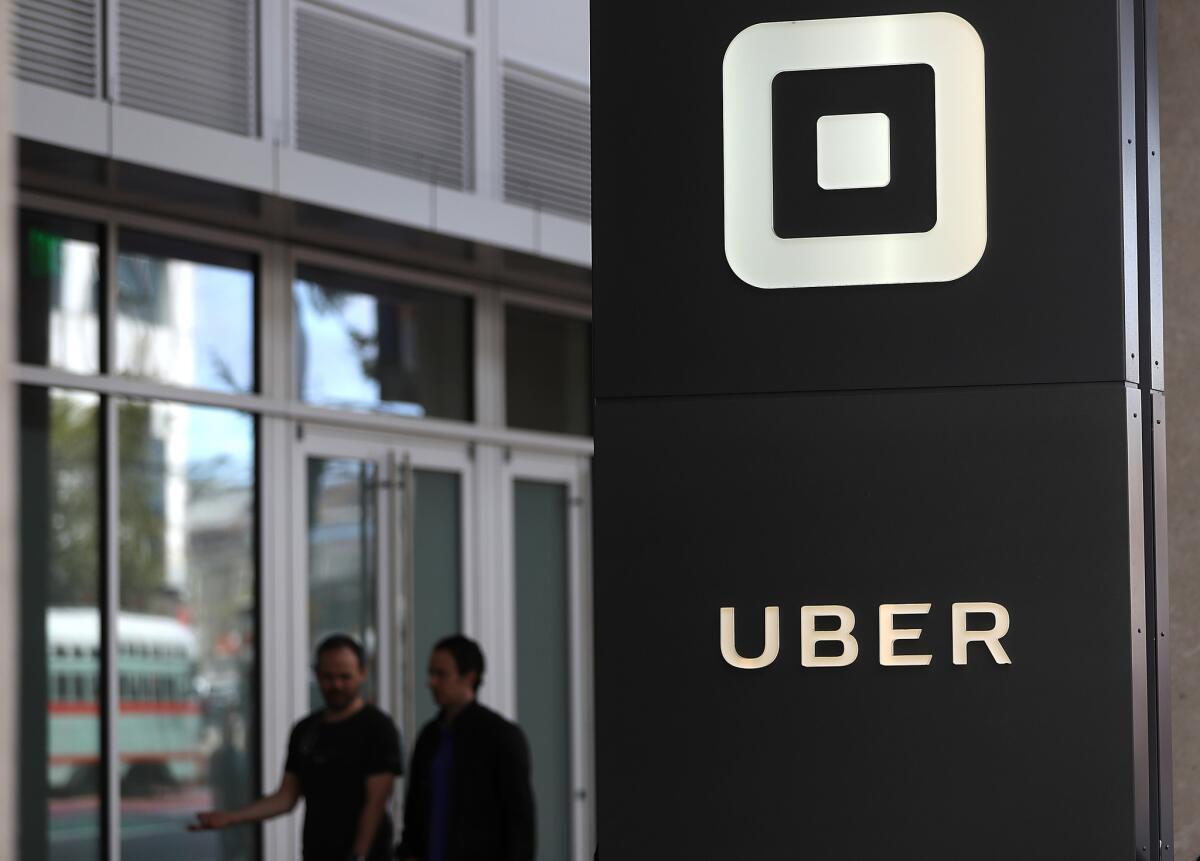In stinging decision for Uber drivers, appeals court says they must go to arbitration

Uber drivers who have banded together to take the ride-hailing company to court now may have to shift strategies and settle for smaller payouts than they had sought.
The U.S. 9th Circuit Court of Appeals in San Francisco said Wednesday that drivers who signed up with Uber in 2013 and 2014 must go to arbitration, not the courts, to resolve disputes with the company.
U.S. District Judge Edward Chen previously ruled that the arbitration agreements were unenforceable and unconscionable. But the appeals panel said Chen lacked the authority to make that call because the contracts require an arbiter to decide âall matters.â
The ruling applies directly to two driversâ challenge of Uberâs background-check practices in a proposed class-action lawsuit. But it could have an effect on dozens of lawsuits across the nation. Uber drivers have used the threat of a class-action lawsuit to extract concessions from the San Francisco company. Having to go to arbitration largely takes the specter of mass litigation off the table.
One key federal case that could now be derailed concerns whether Uber drivers should have been treated as employees, with additional benefits and protections, as opposed to independent contractors. Uber had agreed to a $100-million settlement, which Chen rejected last month, calling it unfair and inadequate.
He said $100 million would amount to only 10% of what the plaintiffsâ side estimated to be the full value of driversâ claims. But plaintiffsâ attorney Shannon Liss-Riordan expressed disappointment in Chenâs decision, anticipating the consequences of the ruling that arrived Wednesday.
âTodayâs decision is not good for the class,â Liss-Riordan said in a statement. âAlthough it was issued in a different case from mine, the Ninth Circuitâs decision endorsed Uberâs attempt to use its arbitration agreement to avoid a systemic challenge to its classification of drivers as employees through a global class action.â
Now, Uber could drop the settlement talks altogether because the appeals court could go on to unwind Chenâs certification of a class of drivers, forcing most of the drivers to individual arbitration. One-one-one fights typically result in smaller benefits for complainants.
The class currently includes some 240,000 drivers from California and Massachusetts. If the arbitration agreements are enforced, the class could be reduced to 8,000 people â those who had rejected the arbitration agreements when they joined Uberâs driver roster.
âArbitration is a fair, speedy and less-costly alternative to class-action litigation,â Ted Boutrous, an attorney for Uber, said in a statement. âWeâve always believed our optional arbitration agreements should have applied in this case, and weâre pleased with the courtâs decision today.â
Liss-Riordan said, âThe battle is far from over.â
Wednesdayâs appellate decision allows some claims to continue in the courts, specifically those brought under a California law that allows individuals to step into the shoes of state regulators and sue for labor law violations.
Liss-Riordan said she has âmore than 1,500 Uber drivers signed up in California to pursue individual arbitration if necessary.â
Lonnie Giamela, a partner at labor and employment firm Fisher and Phillips who is not involved in the case, said the decision will have ramifications on the legal question looming above Uberâs operations.
âThe decision will likely result in a revised settlement that will keep the primary legal issue about what is an independent contractor in the gig economy in legal limbo,â he said.
âTwo or three weeks ago, people were talking about a $100-million or larger settlement, and now itâs the complete converse.â
Times staff writer David Pierson contributed to this report.
Twitter: @peard33
ALSO
Apple unveils the iPhone 7 and the Apple Watch 2
ITT Tech shutdown: How students can learn about their options
Mercedes âmothershipâ will transport robot workers to deliver packages
UPDATES:
3 p.m.: This article was updated to include comment from a legal expert not involved in the case.
1:30 p.m.: This article was updated to include comment from plaintiffsâ attorney Shannon Liss-Riordan.
This article was originally published at 12:35 p.m.




